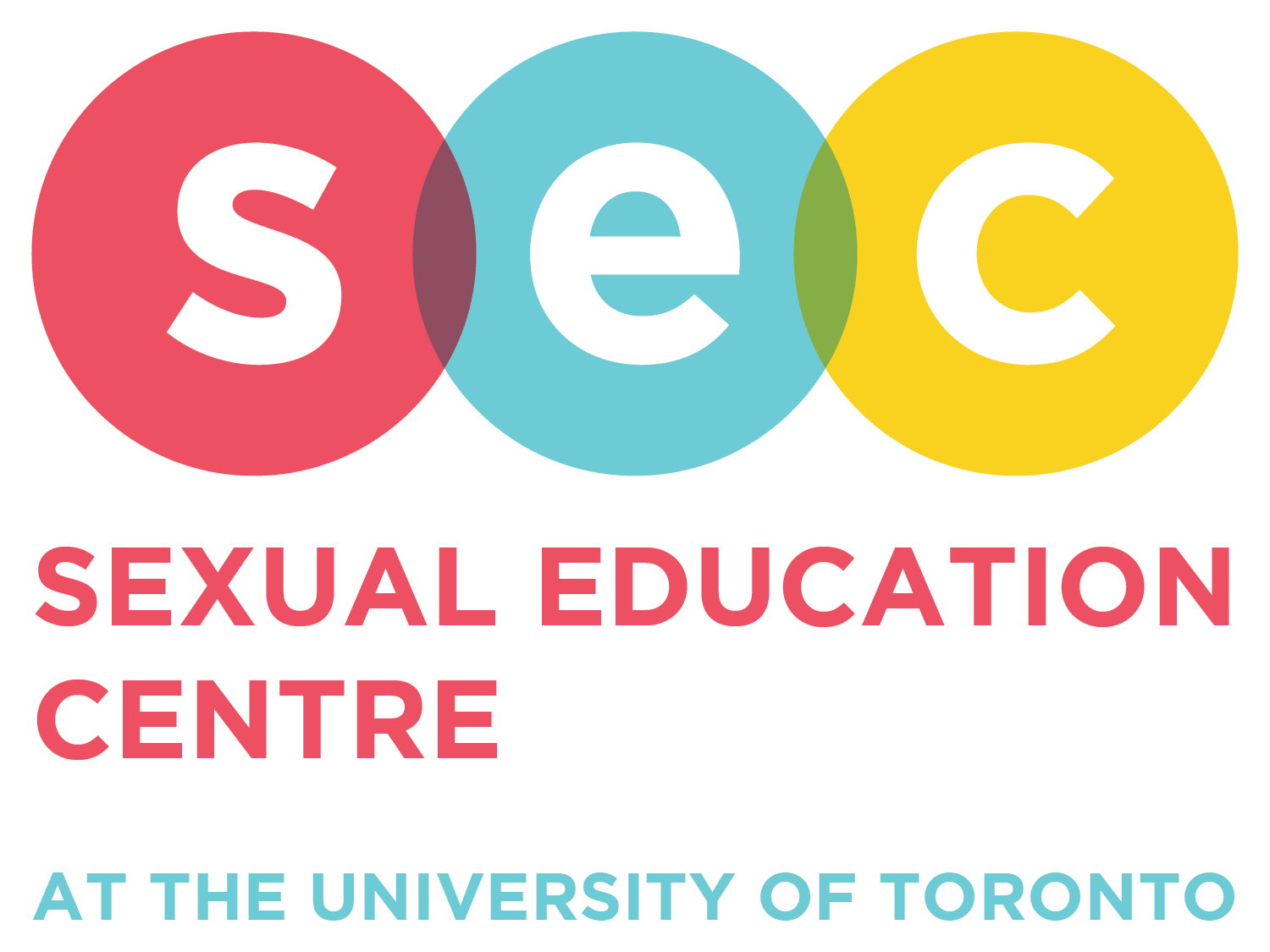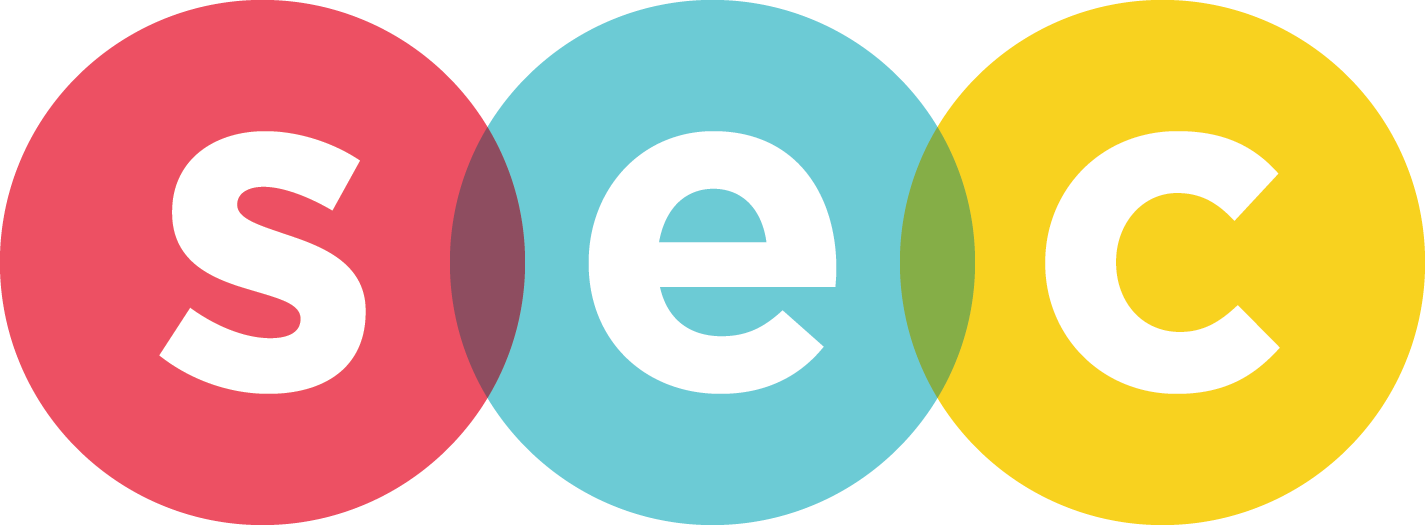
The University of Toronto Sexual Education Centre
The University of Toronto Sexual Education Centre is a 100% not-for-profit, volunteer-run student service group at the University of Toronto, St. George campus.

The SEC is back for the academic year!
We offer free safer sex supplies, peer support, and more!
Phone: 416-946-5041
Address:
230 College St, Room 326
Toronto, ON M5T 1R2
Hours:
Monday, Wednesday, Friday
11 AM to 5 PM
Do you make art?
UTSEC is hosting a community-created gallery for the first day of our SHAW programming (or Sexual Health Awareness Week) and we want to feature YOUR ART!
We are looking for pieces that explore themes of self documentation, memory preservation, resisting categorization, community-care, and collective resistance. These themes are open to your own interpretation.
For more information, click the button below
SEC WANTS YOUR ART!
Have YOU been a member of our SEC volunteer family?
We are so excited to celebrate 50 years of our centre in 2026,
and will be hosting alumni programming in the new year!
If you were involved with SEC in the past and would like to be kept in the loop,
please email sexed@secutoronto.org with the subject line "SEC50",
and include your name and year(s) you volunteered with SEC!
Additionally, if you remember any co-volunteers and think they would be interested in our reunion,
please send us their name and we'll see about getting in touch with them.
Thanks for being an essential part of SEC's history!
We want to hear from you!
Do you know all the services we offer? Which services do you use the most? Is there something you want to see us do in the future? With your responses, we’ll continue to grow and adapt our resources to serve the needs of our community!
If you want to keep up with all the fun things we’re doing, and our hours and other services, sign up for our newsletter
It’s once a month (no spam, we promise) and it covers all the awesome initiatives we’re putting together with your levy funding
About Us
As a levy-funded organization,
all supplies and services provided by SEC are available free of charge to the community.
The Sexual Education Centre offers a free, confidential, non-judgmental peer support approach to sex education.
The services currently offered to all University of Toronto students, faculty, staff, community members and organizations include:
-
We offer an array of 100% free sexual health supplies, including condoms, lube, pregnancy tests, HIV self-test kits, as well as menstrual health products and harm reduction materials. Click here to see our full list of supplies
-
We offer peer support over the phone! You can call us at 416-946-5041 during our regular hours (Monday to Friday, 11am-5pm), and we can answer your questions about sex, sexuality, and what we offer in our office.
We can also offer one-on-one peer support in our office concerning an variety of sexual health topics, and we have print resources and local organizations we can refer to. -
We have an amazing library of resources! Don’t be shy: You can drop by our office during the academic year, and you can check out our 800-item library, featuring rare and out-of-print books, zines, and all manner of sexual health resources
Please feel free to drop by and browse, or you can click here to browse our catalogue of books.
Beyond the library, we also have an array of pamphlets covering sexual health information, so that it’s there at your fingertips whenever you need it. Please come into our office and explore.
-
The External Education Team at SEC offers free presentations to groups at the University of Toronto and in the wider community. Our standard presentation covers sex & gender, sexuality, consent & communication, STIs, and birth control.
Depending on the length of the talk and the size of the group, we are happy to incorporate interactive elements.
We offer a non-judgmental space to ask questions and share your experiences.
If you’re interested in booking a presentation with us, click here to fill out our presentation request form
-
We also offer snacks in our office, as well as stickers, and we give out different products each month in raffles to the community.
To see the full extent of our services, you can come in to our office at 230 College St., Room 326, or you can call us at 416-946-5041
Our Mission
To provide information on all aspects of human sexuality in a comfortable and welcoming environment.
To operate a peer support and referral service to the U of T campus and surrounding community on all aspects of human sexuality and relationships.
To foster a sex-positive attitude on campus.
To devote all the resources of the organization to the charitable activities carried on by the organization in order to meet and maintain SEC’s objectives.
To provide educational and empowering resources surrounding human sexual diversity and sexual orientation.

-
The U of T Sexual Education Centre (SEC) began its operations from a Students’ Administrative Council (SAC) Project Aid Grant in the academic year of 1976-77.
The need for a peer counselling service was manifested at the time. A group of U of T students approached the Students’ Administrative Council for funding and formed SEC. Originally located behind the Admissions Office on Bloor Street, SEC moved to 42A St. George after 1986. With the demolition of 42A in the winter of 1999, SEC moved to the main floor of the CIUT Building at 91 St. George Street, before finally settling in suite 612 of 21 Sussex. SEC moved to its current location at the UTSU Commons Building at 230 College Street in winter 2022, during the Coronavirus-19 Pandemic.
A standing SAC-SEC Committee existed to manage and maintain the Centre’s activities until the academic year 1984-85. However, due to the Centre’s policy on giving abortion clinic referrals if requested, we lost our funding from SAC in 1984. St. Michael’s College (a Roman Catholic Federated College at U of T) threatened to pull its funding from SAC if it continued to fund SEC. In the years of 1984-85 and 1985-86 a SEC Management Committee replaced the SAC-SEC committee. The new Centre now operates independently as a collective.
Since the loss of our core funding in 1984, we had to rely on the generosity of the various student councils and societies at U of T. SAC continued to work on joint projects with SEC thus contributing certain funding to certain events.
On March 20th and 21st, 1996, a referendum question was posed to all full-time undergraduate students in the St. George Campus (Downtown Toronto). The question read as follows:
“Do you agree that SAC should collect a 50 cent (opt-outable) levy from every undergraduate full-time student in the St. George Campus towards the operation of the University of Toronto Sexual Education and Peer Counselling Centre?”
Students voted overwhelmingly in favour of the levy. Starting in the fall of 1996, SEC began to receive direct funding from full-time undergraduate students at U of T. This funding allowed us to expand our services in many needed areas. We increased our outreach in the form of support groups, workshops, a bigger and better Sexual Health Awareness Week. We were able to increase awareness about the services that SEC provides through an increase in publicity. We started an educational video library on sexuality subjects, and expanded our library. Subscriptions to journals and magazines in the field of human sexuality were re-instated, and our training was strengthened.
As of 2010, SEC has kept on keeping on with a twist; we’ve changed our name to better reflect the changing times and meaning of certain words that comes with it. Welcome to the era of the University of Toronto Sexual Education Centre.
In March 2015 SEC ran a referendum question to all graduate students at the University of Toronto asking for support of 50 cents a semester from every full time graduate student and 25 cents a semester from every part time graduate student. An additional referendum was run for this levy to be adjusted for inflation. This levy was successful.
In 2020, due to the COVID-19 pandemic, SEC’s office closed. The organization continued to provide its services virtually and through curbside pickup. The office re-opened for in-person services in winter 2022 at our new location in the UTSU Student Commons.
-
-
SEC is currently funded by:
SEC is currently funded by:
A 76-cent per semester (1 dollar and 52 cents a year) Levy from the Undergraduate Students at University of Toronto
A 1 dollar per semester (2 dollars and 3 cents per year) Levy from full-time Graduate Students at the University of Toronto
A 50-cent per semester (1 dollar per year) levy from part-time Graduate Students at the University of Toronto.
The following student councils, societies, offices and organizations have contributed much valuable financial support and resources to SEC in the past years:
Anonymous Donors, Association of Arts and Sciences Students’ Union, Association of Part-Time Undergraduate Students, City of Toronto Department of Public Health, CUPE 3902 (University of Toronto Education Workers), UofT Engineering Society, UofT Graduate Student’s Union, Innis College Student Council, Lesbians, Gays, Bisexuals, and Transpeople Out at U of T (LGBTOUT), New College Student Council, Ontario Public Interest Research Group (OPIRG), Students’ Administrative Council (SAC), Trinity College Meeting, UofT Office of Student Affairs, University College Literary and Athletic Society (UC Lit), Victoria University Students’ Administrative Council (VUSAC)
-
In addition, the Centre has benefited tremendously from the help and support of the following organizations during our training programs and event presentations:
City of Toronto Department of Public Health
AIDS Committee of Toronto (ACT)
University of Toronto Sexual Harassment Officer
University of Toronto Sexual Assault Officer
University of Toronto Family Care Office
University of Toronto Women’s Centre
University of Toronto Health Services
The House
Central Toronto Youth Services
Toronto Counselling Centre for Lesbians and Gays
Lesbian, Gay and Bisexual Youthline
Metro Toronto Distress Centre
African Community Health Services
2-Spirited People of the First Nations




